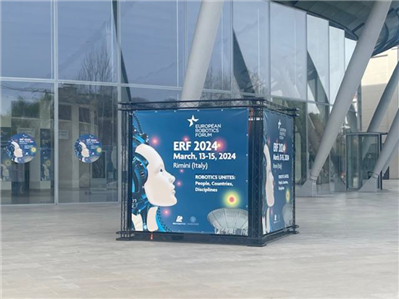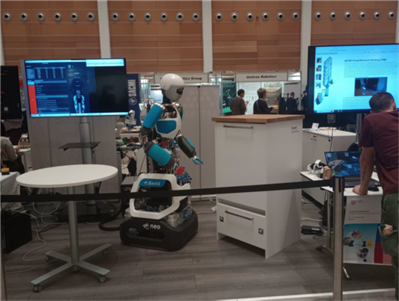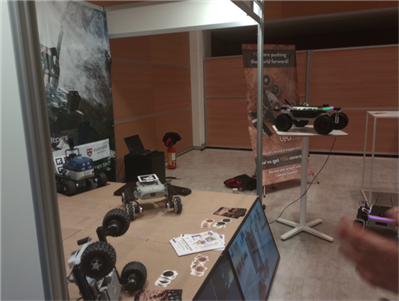By Dr Jelizaveta Konstantinova
The European Robotics Forum (ERF) 2024 is one of the most impactful annual events in the area of robotics and artificial intelligence in Europe. This year it was held from the 13th to the 15th of March in Rimini, Italy.
 The event brought together more than a thousand participants from Europe, including robotics researchers, academics, entrepreneurs, investors and policy makers. ERF provides an extremely valuable opportunity to understand the state of the art in robotics and AI in Europe not only focusing on the latest research breakthroughs, but also covering the overview of industrial and societal challenges that need to be addressed. It is a unique opportunity to connect and network with various stakeholders.
The event brought together more than a thousand participants from Europe, including robotics researchers, academics, entrepreneurs, investors and policy makers. ERF provides an extremely valuable opportunity to understand the state of the art in robotics and AI in Europe not only focusing on the latest research breakthroughs, but also covering the overview of industrial and societal challenges that need to be addressed. It is a unique opportunity to connect and network with various stakeholders.
The opening of the forum was marked by the panel session focusing on sustainability challenges that impact the robotics industry and research. There is a general understanding in the community that the future of robotics research and innovations needs to take into account not only sustainable development of new technologies, but it has also to be built following trustworthy and ethical design. This approach is specifically important when service and household robots become a more popular concept, not only in research, but also in industry. Robot assistant that becomes an integral part of the household needs to be understood by the end users not only in terms of the available functional performance, but also in terms of the limits of the available intelligence of the device.
ERF 2024 coincided with the landmark approval of the EU AI Act by the European Commission, which is the first legal framework in the world to regulate the use of artificial intelligence. AI Act aims to minimise the risks from the use of AI, and to maximise the opportunities for the safe and trustworthy AI. It introduces the obligations of transparency, and AI content will need to become recognisable by the users of the product. AI is defined very generally as - a machine-based system that, for explicit or implicit objectives, infers, from the input it receives, how to generate outputs such as predictions, content, recommendations, or decisions that can influence physical or virtual environments.


The prohibitions of certain AI uses (e.g. biometric cameras for human recognition, emotion recognition or social scoring) kick in after 6 months from now. The AI Act focuses on innovation while ensuring trustworthiness for commercial solutions, and does not apply to any systems in R&D. It adopts a risk-based approach regulating only certain specific use cases based on the risk level, but not specific technologies. The examples of high-risk applications include the areas of biometrics, critical infrastructure, education and employment.
To find out more about ERF and the related activities, one can check the information on the EU robotics network.
Relevant Information: